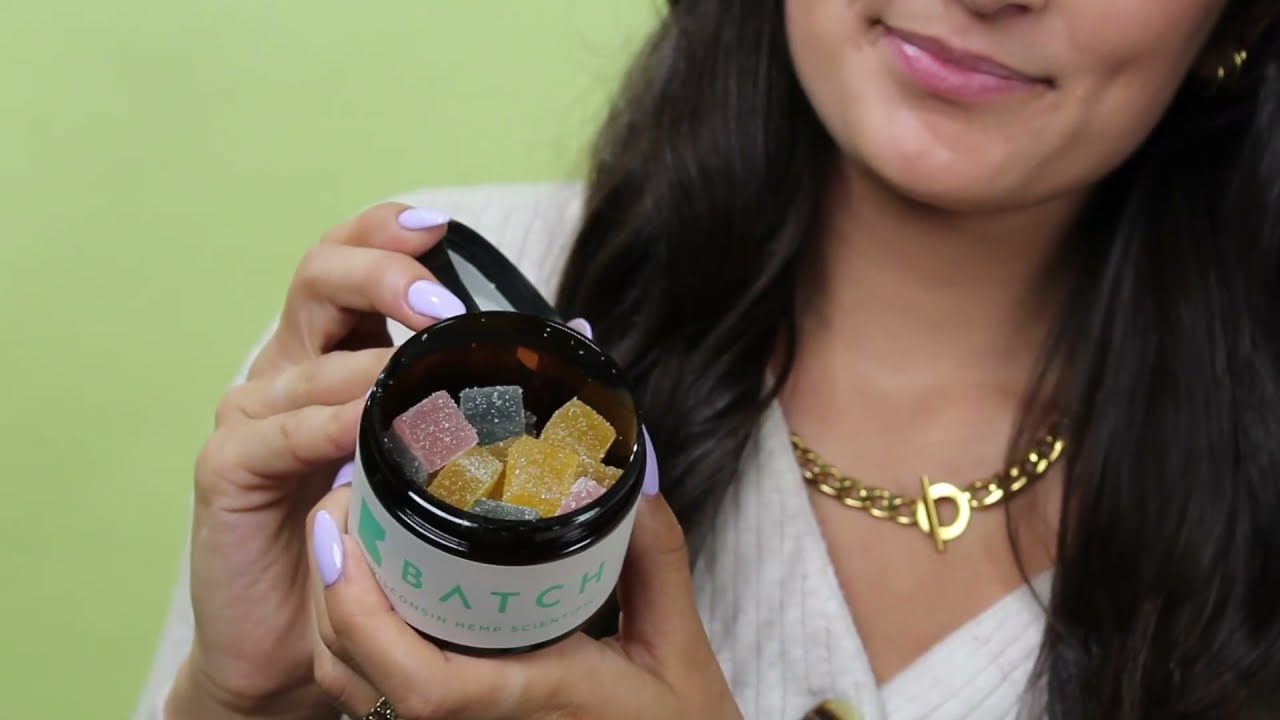Click here to get “The Joyful Wellness: Jolly CBD Gummies Reviewed
“from the official website (Special Discount Code Applied)
Does Cbd Gummies Expire. Shelf stable cannabis gummies!

These gummies are so easy, you can make them with any flavour of jello, their shelf stable and are good for up to two weeks! If they last that long.
1/3cup water
7g gelatin
1 package of jello 85g (any flavour)
1/4tsp citric acid
1/3cup corn syrup
24g cannabis oil (stronger gummy)
You can use less oil for a lower dose, but i like ‘em strong 💪
Small gummies are around 10mg thc
Large gummies are around 50mg thc
#homebaker #strawberry #cannabis #gummies #edibles #selfmedicated
Related articles
- Best Gas Station ED Pills: Reviews and Comparisons
- Best Gas Station ED Pills: Reviews and Comparisons
- Yuppie CBD Gummies: A Trendy Solution for Wellness? An In-Depth Review
- The Best Marijuana Gummies for Sleep: Reviews and Recommendations
- Yuppie CBD Gummies: A Trendy Solution for Wellness? An In-Depth Review
- The Best Marijuana Gummies for Sleep: Reviews and Recommendations
- Charlotte’s Web Hemp Extract Infused Gummies: A Closer Look at Nature…s Goodness
- Understanding the Half-Life of Cannabidiol: What You Need to Know
- Vigor Vita CBD Gummies: A New Era of Wellness
- Dive into Wellness: The Unique Appeal of Green Lobster CBD Gummies
Understanding THC and CBD: A Comprehensive Overview
The landscape of cannabis has evolved dramatically over the years, transitioning from a largely stigmatized substance to a well-respected medical and recreational option. Two of the most significant compounds found in cannabis are THC (tetrahydrocannabinol) and CBD (cannabidiol). Both compounds interact with the body’s endocannabinoid system but produce vastly different effects and have distinct uses. The primary distinguishing factor between THC and CBD lies in their psychoactive properties and their legal status across different jurisdictions. While THC is known for its psychoactive effects, which contribute to the ‘high’ often associated with cannabis use, CBD does not produce such effects, making it appealing for those seeking the therapeutic benefits of cannabis without the intoxication.

Furthermore, THC and CBD are both recognized for their potential health benefits, but their applications diverge significantly. THC is notably effective for pain relief, appetite stimulation, and nausea reduction, making it beneficial for individuals undergoing treatments like chemotherapy or suffering from chronic conditions. On the other hand, CBD has been associated with numerous health benefits such as anxiety relief, anti-inflammatory properties, and seizure reduction, particularly in conditions like epilepsy. This difference in their appeal is vital for consumers and medicinal users alike, depending on their needs and circumstances.
As attitudes toward cannabis continue to shift, understanding the differences between THC and CBD becomes increasingly important. Consumers are more informed and selective, seeking products that align with their health goals and lifestyle choices. This discourse is not just about psychoactive versus non-psychoactive compounds but encompasses a broader discussion about legal implications, health effects, and personal preferences. With the growing market for cannabis-derived products, a clear understanding of the characteristics of THC and CBD is essential for anyone looking to navigate this evolving space effectively.
Legal Status: Navigating the Cannabis Landscape
The legal status of THC and CBD significantly influences how they are perceived and utilized in society. The legality of cannabis products varies widely from one region to another, impacting the availability of THC and CBD-rich products. In many countries and states, THC remains a controlled substance, limited to medical use in specific cases or, in some areas, banned altogether for recreational use. This legal limitation poses challenges for users seeking therapeutic benefits through marijuana.
https://youtube.com/watch?v=jhL8jYsBteA
In contrast, the legal landscape surrounding CBD is substantially more favorable in many jurisdictions. Following the legalization of hemp-derived CBD with low levels of THC under the 2018 Farm Bill in the United States, CBD products have proliferated in the market. Such products often appeal to individuals who are looking for the health benefits associated with cannabis without the risk of legal repercussions or the psychoactive effects that come with THC consumption.
This difference in legal treatment impacts consumer education and market accessibility. While those seeking the benefits of THC may need to navigate intricate regulations, including obtaining prescriptions and accessing licensed dispensaries, individuals looking for CBD can access a broader range of products, including oils, edibles, and topical applications, in various retail settings. This discrepancy not only affects consumer choices but also shapes societal perceptions of each compound.
Psychoactive Effects: Contrast Between THC and CBD
The psychoactive nature of THC distinguishes it significantly from CBD, shaping user experiences and medical applications. THC binds directly to cannabinoid receptors in the brain, particularly the CB1 receptors, leading to a range of euphoric effects. These include heightened sensory perception, altered mood, and relaxation, making THC popular among recreational users seeking an enhanced experience from social scenarios or creative activities. However, these effects may also lead to some adverse reactions, such as anxiety or paranoia in particular individuals, particularly those who are inexperienced or consume high quantities.
In contrast, CBD has garnered attention for its non-psychoactive profile. With negligible interaction with the brain’s CB1 receptors, CBD doesn’t induce a ‘high.’ Instead, it promotes a state of calm and well-being without the intoxicating effects. This quality makes CBD particularly attractive for individuals looking for relief from anxiety, chronic pain, or insomnia without the complications associated with THC’s psychoactivity. Research continues to support CBD’s role in various therapeutic areas, strengthening its appeal in both medical and personal wellness contexts.

The distinction between the psychoactive effects of THC and the neutral impact of CBD is crucial for potential users to consider. Those using THC might need to assess the context—medical versus recreational—to understand its effects better, balancing the euphoria with potential side effects. Meanwhile, CBD users can confidently explore dosage and forms, knowing they won’t experience the mind-altering effects commonly associated with THC use.
Health Benefits: Therapeutic Applications of THC and CBD
The health benefits of THC and CBD are well documented, each offering unique therapeutic options. THC is often utilized in medical settings to alleviate pain, particularly in patients with chronic conditions. Its ability to modulate pain perception and provide relief from inflammation is well recognized, especially among cancer patients experiencing chemotherapy-induced nausea. THC is also known to stimulate appetite, often beneficial for individuals dealing with severe weight loss or eating disorders.
On the other hand, CBD’s therapeutic benefits differ significantly. Known for its anxiolytic properties, CBD is often used to manage anxiety and promote relaxation. Various studies have documented its role in reducing the frequency and severity of seizures in epilepsy, particularly in children, leading to the development of CBD-based pharmaceuticals. Furthermore, its anti-inflammatory effects have generated interest in treating a variety of conditions, from arthritis to skin issues, making it a versatile component of holistic health practices.
The contrast in health benefits highlights the importance of tailoring usage to individual needs. While THC may be best suited for patient populations focused on pain and appetite stimulation, CBD offers a broader application for mental wellness and chronic pain management without the psychoactive involvement. This divergence is instrumental in informing users, healthcare providers, and policymakers regarding the optimal use of cannabis-derived substances.
Product Forms and Consumption Methods: Exploring Options
The ways in which THC and CBD are consumed vary extensively, influenced by both legal factors and user preferences. Cannabis products come in multiple forms, including oils, tinctures, edibles, capsules, and topical treatments. THC products are often consumed through smoke or vape forms for rapid effects; however, edibles and oils are also widespread. Each method offers distinct onset times and durations of effects, necessitating careful consideration for users based on their desired outcomes.
When it comes to CBD products, the options available on the market are extensive and diverse. CBD oil, popular for its versatility, can be taken sublingually, mixed into beverages, or applied directly to the skin. Edible forms, such as gummies or baked goods, provide a tasty option for those wary of oils or tinctures. Furthermore, CBD topical products are increasingly gaining traction, especially for treating localized pain or skin conditions. Each method of CBD consumption offers distinct advantages, providing myriad options for those seeking its benefits.
The variety of consumption methods available for both THC and CBD allows users greater personalization to meet their unique needs. Understanding the differences in bioavailability and onset times enhances the user experience, ensuring individuals find the most effective delivery method. Educational resources surrounding consumption methods are integral to assisting consumers in making informed choices about their cannabis use.
Addressing Common Questions About THC and CBD
As both THC and CBD gain popularity, numerous questions arise regarding their safety, efficacy, and appropriate use. A common inquiry revolves around the safety of cannabis products. Generally, both THC and CBD are deemed safe when used responsibly, but individual reactions can vary. Consulting with a healthcare provider before using either compound, particularly for those with pre-existing health conditions or those taking medications that may interact with cannabis, is advisable.
Another frequent question is about the legal status of these compounds. As mentioned, THC poses more restrictions in many regions compared to CBD. Users should familiarize themselves with local cannabis laws to ensure compliance. Furthermore, consumers often wonder about the distinction between THC and CBD in terms of medical applications. Understanding that THC offers potent pain relief while CBD provides calming effects can aid individuals in choosing the right product for their needs.
Lastly, individuals often inquire about potential side effects associated with THC or CBD. THC can induce psychoactive effects and cause anxiety in some users, while CBD is generally well tolerated with minimal side effects. Educating users on these differences can help them make informed choices about their cannabis consumption, promoting safe and beneficial use.
